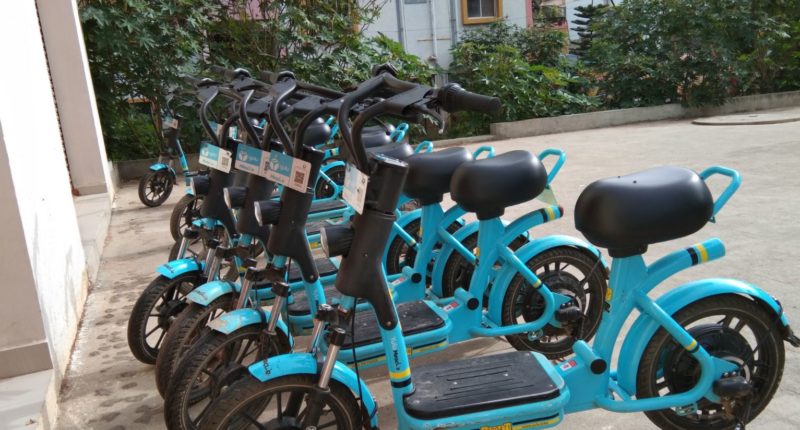India’s Yulu, a startup that lets people rent a bicycles and electric scooters, has announced raising of close to $8 Million in a fresh financing round. The round was led by Bajaj Auto, a $13 Billion automotive conglomerate which is India’s second and the world’s third largest motorcycle manufacturer.
As a part of the overall investment deal, Bajaj Auto is going to manufacture customized electric scooters for the Bengaluru-based startup. The automaker will also consider facilitating the vehicle finance needs of Yulu, through Bajaj Finserv. The deal, while bringing in finance, will help Yulu solve mass manufacturing and scale problems.
Rajiv Bajaj, the CEO of the automotive behemoth, said in a statement, “At Bajaj Auto, we believe that the two factors of congestion reduction and pollution control will drive the segment of shared micro-mobility in the future. That coupled with the expansion of Mass Rapid Transport System like Metro in large cities will further boost the demand for flexible last-mile connectivity”.
According to Yulu’s website, the company touts itself as a micro-mobility solutions provider, servicing consumers with two offerings — Yulu Move and Yulu Miracle. While Yulu move is the brand tag for its bicycle renting segment, Yulu Miracle — and the more relevant one — is the name of company’s electric scooter rental segment.
Yulu Miracle is quite unique in itself, and is arguably the rationale behind Bajaj group’s investment. Miracle is a dockless electrical vehicle, which is powered by Yulu’s proprietary IoT technology. Riders can simply download the Yulu app, go to one of Miracle parking zones, scan the QR code on the bike, and they are set. The scooter is reasonably light-weight, thus allowing to even carry them inside offices or eating joints. The maximum speed is capped at 25 Km/h.
The rides are cheap as well. For a one hour ride, it costs less than a dollar (INR 10 per 10 minutes) for the ride time, with an additional INR 0.50 per minute of pause charges and an INR 10 bike unlocking fees.
Micromobility is a dire need, specially in a country like India, which, despite having a fairly large metro network, continues to be one of the worst affected countries when it comes to traffic congestion. Bengaluru for example, which is touted as India’s Silicon Valley, has a traffic density 149 vehicles per km of road, the fifth highest in the country.
The Tech Portal is published by Blue Box Media Private Limited. Our investors have no influence over our reporting. Read our full Ownership and Funding Disclosure →






